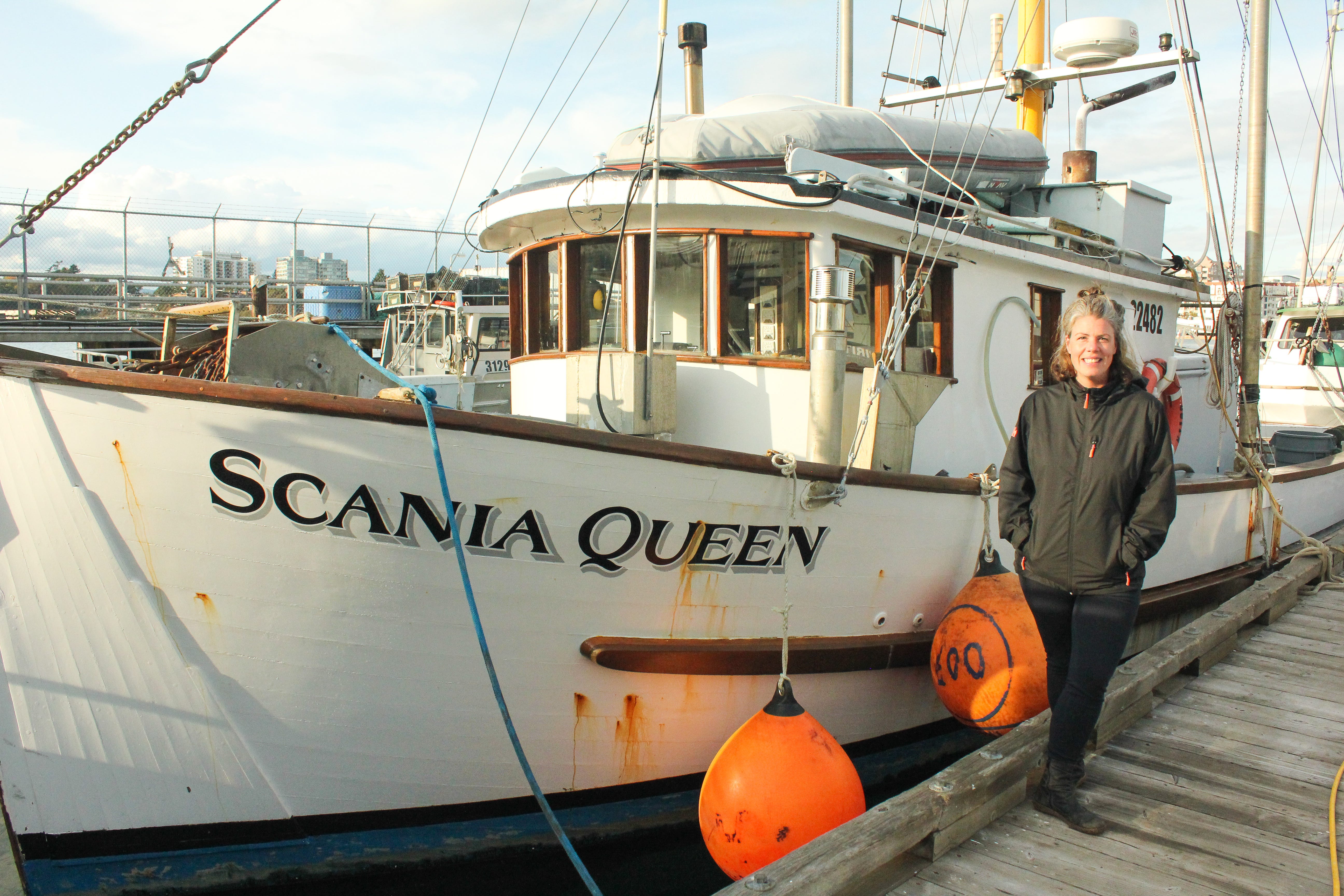Stories at Sea is a series of interviews highlighting artisanal fishermen, fisheries, and suppliers who are furthering the seafood industry within Canada. We are here to tell their stories and to pass on their wisdom to the greater community.

Finest At Sea is a boutique-style seafood company with locations in Victoria and Vancouver, BC. Founded in 1984 by longtime local fisherman, Bob Fraumeni, F.A.S. currently deploys 8 boats, catching everything from Halibut to Albacore Tuna. Known for their high standards of quality and their industry-leading sustainable catch methods, F.A.S. strives to shape global best practices in sustainability and stock preservation.
We sat down with their head of Operations, Jennifer Gidora, to discuss the importance of sustainability, and how to leverage your buying power for good.

Freshline Team: Tell us a little about Finest At Sea and what brought you here?
Jennifer: Bob Fraumeni, the sole owner of F.A.S., was born and raised in James Bay, Victoria. Bob started with one commercial fishing boat in the late 60s, operating out of his old heritage house on Fishers Wharf in Victoria, BC. By the 80s, he had bought additional fishing licenses and expanded his fleet. At the time, Bob’s catch was sold to Japan. A buyer would buy the whole boatload and everything would be shipped direct. If he had wanted to remain a very wealthy fisherman, he would have stuck with this business model.
By the 90s, Bob’s fish had a reputation for being nearly perfect. He had insanely high standards with his fishing practices, and locals were eager to access to his products. Bob decided to convert his old heritage home, intended to be his commercial office, into a fish market. He took out a couple of walls and converted the first floor into a small market, where locals could purchase his catch. Chefs started to frequent his shop and Bob’s miniature wholesale business took off. To keep up with the local restaurant demand, he converted the old garage into a fish processing plant. Once the wholesale business grew, they could no longer keep up with the demand in the existing plant, so they had to construct a larger plant. They set up shop in nearby Vancouver and added a fish cart out front of the Victoria heritage home.
Bob still fishes a lot commercially. Around 5% of the total catch remains in Victoria, and the rest goes elsewhere overseas. Many of Victoria’s top restaurants are his customers. Growth has been a very homegrown process, and Bob’s businesses and fishing practices have made an impact on not only Victoria but also Canada as a whole. The Ocean Wise program largely adopted Bob’s practices of ‘one hook to one fish’. Still, today, Finest At Sea never uses nets, whether gill or trawl. Each catch is slow, methodical, and perfect.
I was introduced to Finest at Sea from the restaurant side. I used to GM restaurants. I ran one really big dining room and two smaller farm to table restaurants. One of the locations had a big seafood focus, so I drank from the F.A.S. cool-aide long ago. When I came back from maternity leave, I didn’t feel like returning to the restaurants. Instead, I joined F.A.S. as their office admin. Early on in my career at F.A.S, the team very quickly realized that I had restaurant connections and was capable of much more responsibility. As I took on more scope, I transitioned into the Operations Manager. It became a natural fit.


What does your day to day look like?
My day to day is insane. I do a little bit of everything. I will start my day at 6 am checking my phone, seeing what chef orders came in through the night. I have to get all orders into the plant by 7:30 or so. Once orders are out, I make sure deliveries are intact and that trucks are going where they need to be. I also work very closely with Rich, the processing plant manager, helping him with whatever he needs. We are currently down an accountant, so I manage all A/P and A/R as well.
I do whatever is necessary to make sure restaurants and consumers are happy and that our captains have the support they need on the boat. For example, two days ago a boat needed 600kg a very particular type of salt. We had to figure out how to get a last-minute order of this size to Richmond, within 6 hours.
“You have so much ability to influence how people shop once they leave your location. As a consumer, you have so much buying power, so use it for good.”
What about the industry intrigues you? Why do you stay in the industry
Much of my life has been about food security and food politics. It has always been really important when running restaurants. You have so much ability to influence how people shop once they leave your location. As a consumer, you have so much buying power, so use it for good.
I so strongly believed in it [food security], and still do, even when working with it from the supplier side. When talking to people about our products, it is genuine. It’s the real deal. Everything about Bob is real. There are so few good guys in the world, people who can do things the right way. It’s very empowering to have the chance to work with someone who’s doing that and to help it keep going.
As seafood becomes a luxury good, you see people making the shift, saying do I go for the cheaper option on this one? Or do I serve a smaller portion but keep our integrity?

What would you tell other people getting into the industry?
I came into this role thinking I knew a lot about seafood, but I only knew so much. It’s such an insane, complicated industry, with a lot of not always truthful people. It’s a strange world, and I’m fearful for so many small, Canadian owned processing plants the are being bought out by big international companies. I’m scared of how much of the industry is going to remain independent. Are young Canadian families going to be able to make a career as a fisherman when fish becomes more of a commodity, being sold internationally?
Do you have a dream for Finest At Sea? What would you like to be doing 10 years from now?
The question is, do we [F.A.S.] just keep up what we are doing, or do we try to go bigger? We did open up a location eight years ago in Vancouver- a plant on Granville island and a store in Kerrisdale. We closed those locations however as it was too hard to keep up consistency between the two plants by travelling back and forth. With fish, you have to take such good care of it. It takes a lot of investment to keep up our high standards.
We currently are bursting at the seams in our funny little old heritage house, with our ad hoc garage plant. Should we move and move into a new industrial area and try to go big, go federal? Or do we keep doing what we do? We don’t know the answer to that.
To keep up with our coverage of harvesters like Jennifer, and to see how Freshline is building the future of food, subscribe to our newsletter or visit our website, freshline.io.




